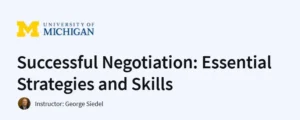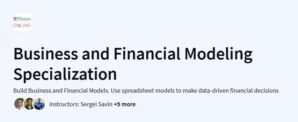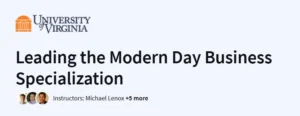What will you in Docker for the What is Social? Course
Understand the foundational principles of social media marketing and its impact on business strategies.
Analyze current social trends and their implications for digital marketing.
Develop effective content strategies tailored to target audiences.
Leverage big data and AI tools to enhance social media engagement and performance.
Program Overview
1. Introduction to Social Marketing
⏳ Duration: 1 hour
Gain insights into the goals, structure, and deliverables of the Social Marketing Specialization MOOCs, and understand how each course builds upon the previous to create a cohesive learning experience.
2. Social Trends
⏳ Duration: 1 hour
Explore the digital revolution’s impact on the marketplace and learn how to navigate and make sense of the disrupted digital world.
3. The Business of Social
⏳ Duration: 2 hours
Learn to view social media as a holistic, consumer-focused, and integrated platform. Engage in a peer review assignment to define your target audience on social media.
4. Social Overview
⏳ Duration: 2 hours
Understand the importance of big data, differentiate between social networks and communities, and set up social sites for use throughout the specialization.
Get certificate
Job Outlook
Equips learners for roles such as Social Media Manager, Digital Marketing Specialist, and Content Strategist.
Applicable in industries where digital presence and engagement are crucial, including retail, technology, and media.
Provides practical skills in content strategy, audience analysis, and social media management.
Supports career advancement in fields requiring expertise in digital marketing and social media strategies.
Specification: What is Social?
|
FAQs
- Focuses on real-time engagement rather than static campaigns.
- Relies heavily on data analytics to track performance instantly.
- Builds two-way communication with audiences, not just one-way advertising.
- Encourages personalization based on user behavior.
- Leverages global reach at lower costs compared to print or TV.
- No advanced social media expertise is required.
- Familiarity with basic marketing concepts is helpful but not mandatory.
- The course begins with foundational principles before moving to strategy.
- Hands-on assignments help bridge knowledge gaps.
- Learners can practice in real-time using their own accounts or case studies.
- Social Media Manager in corporations or startups.
- Digital Marketing Specialist across industries.
- Content Strategist focusing on audience-driven storytelling.
- Marketing Analyst with a specialization in digital metrics.
- Freelance consultant offering social branding services.
- Provides an overview of paid vs. organic strategies.
- Explains how businesses use ads to boost reach and conversions.
- Focuses more on principles than on technical ad setup.
- Encourages learners to integrate paid media into content strategy.
- Suggests platforms where deeper ad training can be pursued.
- Teaches cost-effective strategies for limited budgets.
- Helps design content that resonates with niche audiences.
- Provides tools to track engagement without expensive software.
- Offers strategies adaptable to personal branding or business pages.
- Equips learners to compete with larger firms by being agile and creative.





